Keith
Whitley

-
Inducted2022
-
Born
July 1, 1954
-
Died
May 9, 1989
-
Birthplace
Sandy Hook, Kentucky
A premier vocal stylist, Keith Whitley helped spearhead the New Traditionalist revival of classic country music in the 1980s, at a time when pop- and rock-inflected songs and styles dominated the genre. Along with Reba McEntire, Ricky Skaggs, George Strait, Randy Travis, Dwight Yoakam, and other artists, Whitley reconnected the genre to vital traditional sounds and styles.
Unlike his major contemporaries, though, Whitley’s solo career barely spanned five years. Yet his remarkable body of recorded work proved enormously influential to country musicians who followed.
A Child Prodigy
Born July 1, 1954, Jackie Keith Whitley grew up in Eastern Kentucky, near Sandy Hook, in a family that was deeply engaged in music-making. A musical prodigy, he loved to sing from a young age and began performing publicly when just four years old. After he won a talent contest at age six, his electrician father, Elmer, bought him his first guitar. His multi-instrumentalist mother, Faye, also encouraged her son’s musical interest and taught him the rudiments of guitar. Whitley went on to debut on both radio and television and formed his own band with banjo-playing older brother Dwight, all before he turned fourteen.
Whitley absorbed the music of his native Appalachia, especially the bluegrass music of the Stanley Brothers. Most of his childhood musical heroes, though, were hard-country singers: Hank Williams, George Jones, Merle Haggard, and his favorite of all, Lefty Frizzell. By the time he was a sophomore in high school, Whitley had set his sights on becoming a professional musician. To do so in Eastern Kentucky, however, meant playing the region’s dominant music, and so, although he remained a diehard fan of honky-tonk music, Whitley first made a name for himself as a bluegrass artist.
A Career Start in Bluegrass
In 1968, Whitley met Ricky Skaggs, also then fourteen years old, at a talent show in Ezel, Kentucky. The boys quickly found they not only shared a passion for the music of the Stanley Brothers, but, harmonizing together, they sounded like dead-ringers for their musical idols. Whitley and Skaggs formed a bluegrass tribute band that specialized in performing the high, lonesome songs of Carter and Ralph Stanley.
In 1970, when Ralph Stanley & the Clinch Mountain Boys were delayed in getting to a performance in Fort Gay, West Virginia, the nightclub’s owner invited Whitley and Skaggs to fill in. When Stanley finally arrived, he was greeted with the sounds of Stanley Brothers’ songs. Initially, Stanley thought one of his old records was playing on the jukebox and was surprised to discover two high schoolers, as he recalled, “doing the Stanley Brothers better than the Stanley Brothers.” Deeply impressed, he hired Whitley and Skaggs as members of his band, and the two toured and recorded with the group over the next two and half years, playing the circuit of bluegrass festivals, nightclubs, and roadside beer joints.
In 1972, Whitley left Stanley’s Clinch Mountain Boys to pursue his own musical direction, but returned two years later, this time as lead singer and guitarist. Following his second departure in 1977, Whitley joined J. D. Crowe & the New South, a progressive bluegrass band that offered him more creative freedom. As its lead singer and guitarist from 1978 to 1982, he cut two albums with the band, including the critically acclaimed Somewhere Between (1982), which Crowe deliberately arranged and produced to showcase Whitley’s gifts as a honky-tonk singer.
Mainstream Country Success
Despite achieving considerable success in the world of bluegrass, Whitley aspired to make music that was aligned with his passion for traditional country music. He moved to Nashville to launch a solo career and, in 1984, signed with RCA Records. A six-track EP, A Hard Act to Follow (1984), attracted minimal attention, but his debut LP the following year, L.A. to Miami, yielded his first Top Ten hit singles, “Ten Feet Away,” “Homecoming ’63,” and “Hard Livin’.” Nonetheless, he remained dissatisfied with what he considered the slick, pop-inflected productions featured on the album. Whitley hit his stride on his second LP, co-produced with Garth Fundis, which highlighted Whitley’s hardcore yet modern honky-tonk sound. Don’t Close Your Eyes (1988), his breakout album, produced three consecutive chart-topping hits: the title track (written by Bob McDill), “When You Say Nothing at All” (Paul Overstreet and Don Schlitz), and “I’m No Stranger to the Rain” (Sonny Curtis and Ron Hellard).
Whitley’s signature sides reveal a deep reverence for traditional honky-tonk music and a distinctive, note-bending vocal style modeled after Lefty Frizzell and George Jones, but infused with bluegrass flourishes. His instantly identifiable baritone and expressive phrasing could convey melancholy, vulnerability, or devil-may-care exuberance, and were ideally suited to exploring the themes of love, loss, and heartache in the classic ballads for which he is best remembered. Whitley was also a gifted songwriter, penning, often in collaboration with veteran Nashville songwriters, such selections as “There’s a New Kid in Town,” “I Want My Rib Back,” “Wherever You Are Tonight,” and “I’ve Done Everything Hank Did But Die.”
A Tragic Early Death
In 1986, Whitley began dating singer Lorrie Morgan, daughter of George Morgan, a Grand Ole Opry star and member of the Country Music Hall of Fame. The couple married that November, and their son, Jesse Keith Whitley, now a singer and songwriter himself, was born the following year. Whitley also adopted Lorrie’s daughter from her first marriage, Morgan. Whitley had a fondness for fast sports cars, Harley-Davidson motorcycles, Nashville hot chicken, and biscuits smothered with chocolate gravy. Like too many of his honky-tonk heroes, though, he struggled with alcohol addiction. Just thirty-four years old and on the verge of becoming Nashville’s newest major star, Whitley passed away on May 9, 1989, in his home in Goodlettsville, Tennessee, from acute alcohol poisoning.
Three months later, Whitley’s third album, I Wonder Do You Think of Me, solidified his legacy as one of modern country music’s most admired singers. The album produced two more chart-toppers, the title track and “It Ain’t Nothin’,” extending his unbroken streak of #1 hits to five. Among his many posthumous honors, “I’m No Stranger to the Rain” garnered Country Music Association’s 1989 Single of the Year award, and “’Til a Tear Becomes a Rose,” a duet with Lorrie Morgan, earned the CMA’s Vocal Event of the Year award in 1990.
Keith Whitley sang with soulful authority and passion and, as a consummate artist, was emotionally invested in everything he performed. “Songs I do have to strike an emotional chord the first time I sing them,” he once told an interviewer. “It’s not uncommon for me to get so wrapped up in a song that I cry several times when I sing them.” Stars who have publicly acknowledged his influence include Garth Brooks, Tim McGraw, Alan Jackson, Alison Krauss, Blake Shelton, and Kenny Chesney. “Nobody sounded like Keith,” his mentor Ralph Stanley wrote in his 2009 memoir. “When you heard him on the radio, you knew who it was. If he had lived, he would have been one of the greatest singers Nashville ever saw. But he had something deep down inside of him that wouldn’t let him alone.”
—Patrick Huber
00:00 / 00:00
00:00 / 00:00
00:00 / 00:00
Keith Whitley’s instantly identifiable baritone and expressive phrasing could convey melancholy, vulnerability, or devil-may-care exuberance, and were ideally suited to exploring the themes of love, loss, and heartache in the classic ballads for which he is best remembered.
“When You Say Nothing at All” music video
1988
“Miami, My Amy”
Nashville Now, 1988
-
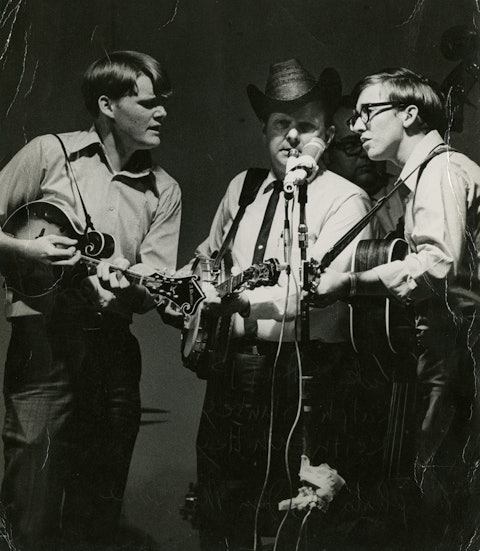
From left: Ricky Skaggs, Ralph Stanley, and Keith Whitley perform in Berryville, Virginia, c. 1970s. Photo by Jim McGuire.
-
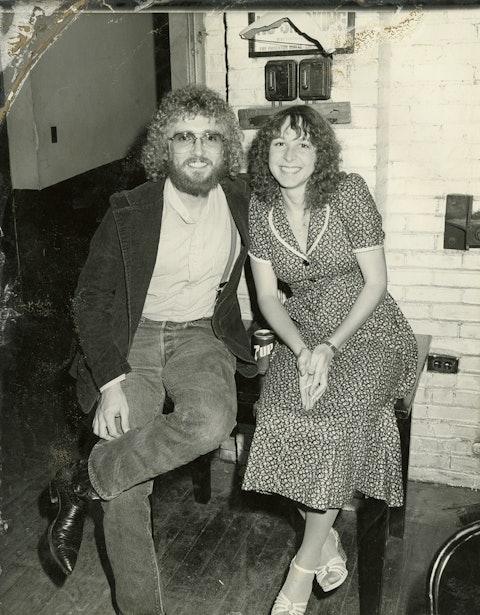
Keith Whitley and his first wife, Kathi Whitley, backstage at Taft Auditorium in Cincinnati, Ohio, 1980.
-
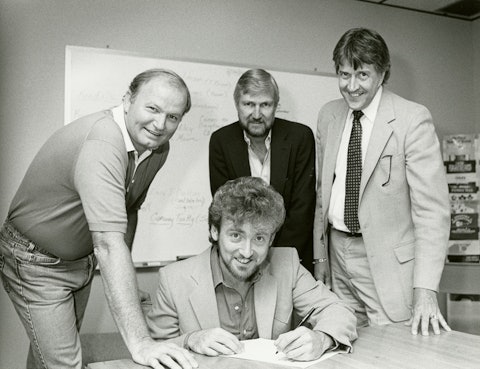
Keith Whitley signing a contract. Standing, from left: Roger Sovine, Don Light, and Harry Warner, 1984. Photo by Don Putnam.
-
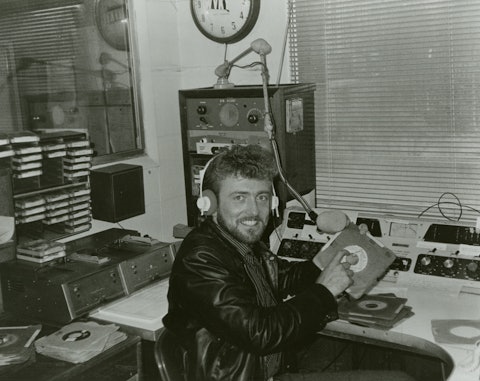
Keith Whitley at an unidentified radio station, 1985.
-
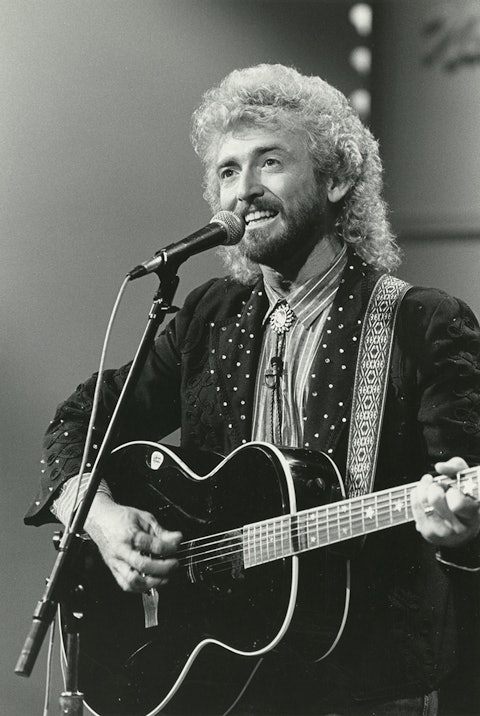
Keith Whitley performs for the Nashville Network, 1988. Photo by Jim Hagans.
-
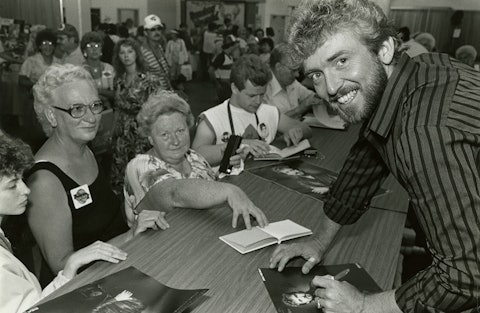
Keith Whitley signing autographs, 1988. Photo by Melodie Gimple.
-
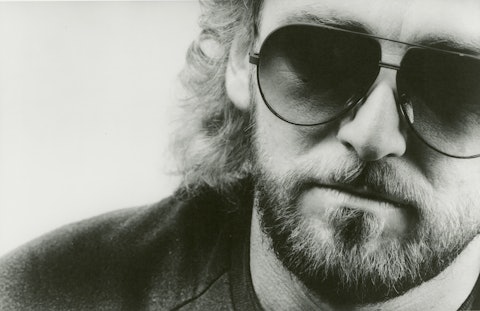
Keith Whitley publicity photo, c. 1980s.
-
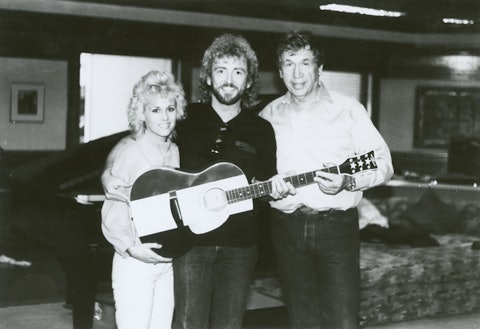
From left: Lorrie Morgan, Keith Whitley, and Buck Owens, c. 1980s.
-
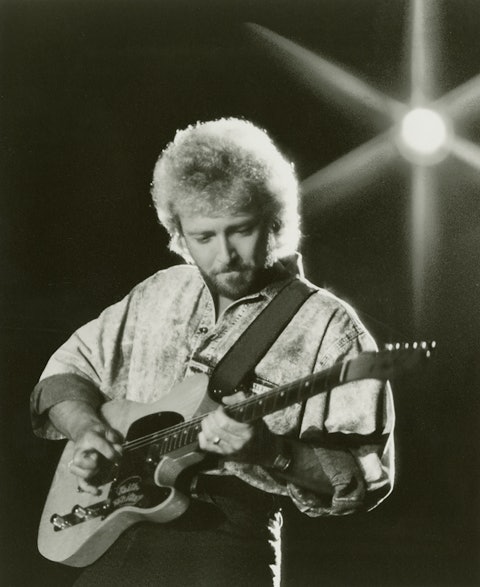
Keith Whitley publicity photo, c. 1980s.


